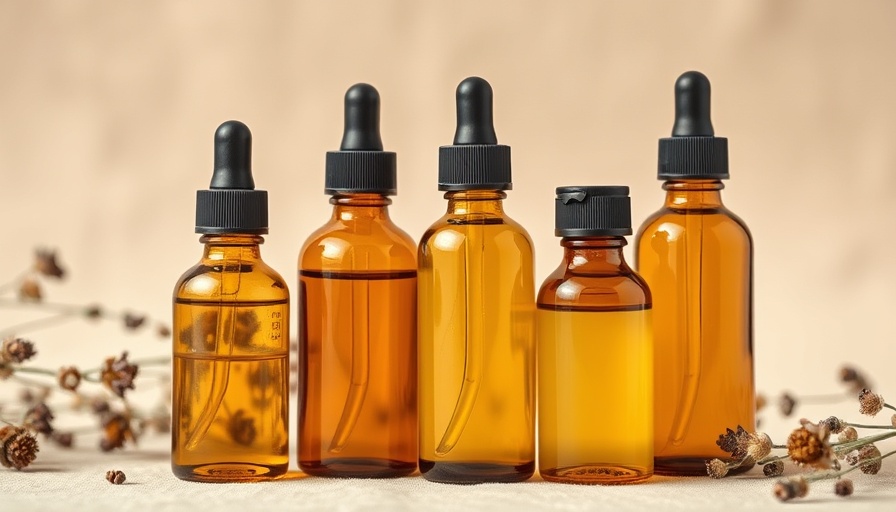
Understanding the Lifespan of Essential Oils
Essential oils have carved out an essential space in our homes—especially for those who prioritize natural remedies and holistic health. However, a lingering question remains: how long do these oils actually last? According to essential oil expert Valencia McClure, the general shelf life of essential oils can span from one to six years, largely dependent on the type of oil and storage conditions. Citrus oils, like lemon and sweet orange, typically linger for about one to two years, while deeper, more robust oils such as sandalwood and patchouli may last up to six years. Understanding these factors can be particularly valuable for individuals managing health conditions like diabetes and high cholesterol, where holistic wellness often intertwines with careful self-care practices.
Signs Your Essential Oils Have Expired
Knowing how to identify expired essential oils is key to maximizing their benefits. If your oil has lost its aroma or is beginning to appear murky, it might be past its prime. McClure advises monitoring the scent and appearance of your oils from the moment you purchase them. This practice not only helps in identifying rancid oils but is also fundamental for maintaining optimal health. Keeping your oils fresh ensures you can rely on their healing properties whenever needed, especially when dealing with chronic conditions.
Best Practices for Storing Essential Oils
Proper storage can mean the difference between preserving or wasting your essential oils. Here are some expert tips for keeping your beloved oils in perfect condition:
- Keep them in a cool, dark place: UV light and heat can degrade the oil quality, accelerating oxidation.
- Seal tightly: Ensure lids are on securely to avoid exposure to air, which causes oxidation.
- Use dark bottles: Storing essential oils in amber or cobalt blue glass bottles can help filter out damaging light.
- Avoid extreme temperatures: Do not place oils near stoves or in overly humid environments like bathrooms.
- Label and date: Keep track of when you purchased each oil to monitor its age more effectively.
By integrating these practices, you'll extend the efficacy of your essential oils, complementing any dietary decisions that may arise from conditions like prediabetes or high blood pressure.
The Role of Essential Oils in Metabolic Health
Essential oils can play a supportive role in metabolic health, particularly for those with conditions like high blood sugar or PCOS. Many oils boast properties that can help reduce inflammation, boost mood, and even assist in weight management—each beneficial for those navigating the complexities of intermittent fasting and the keto diet. For instance, peppermint oil is known to aid digestion, which is crucial during fasting periods, while lavender can help alleviate stress, promoting better overall wellness.
Creating a Holistic Health Approach
Understanding how to extend the shelf life of your essential oils aligns seamlessly with building a more comprehensive approach to health, integrating diet and lifestyle changes with effective natural remedies. The journey becomes not just about managing conditions but embracing a lifestyle that supports vitality.
Every choice you make—whether it’s selecting fresh ingredients for your meals or ensuring your essential oils are stored correctly—adds up to a larger narrative of your wellbeing. As you delve deeper into health management through diet, consider how small adjustments to your holistic practices can yield impressive results.
Why Take Action Now?
Implementing these tips for storing essential oils and understanding their benefits can significantly affect your overall health. Whether you’re dealing with high cholesterol, diabetes, or merely pursuing a healthier lifestyle, these small adjustments can ensure you harness the full potential of your essential oils.
Ready to enhance your overall wellness? Start by organizing your essential oil storage today. Reflect on the dietary practices that serve you well and embrace the journey towards healthier living with every drop.
 Add Row
Add Row  Add
Add 



 Add Row
Add Row  Add
Add 


Write A Comment